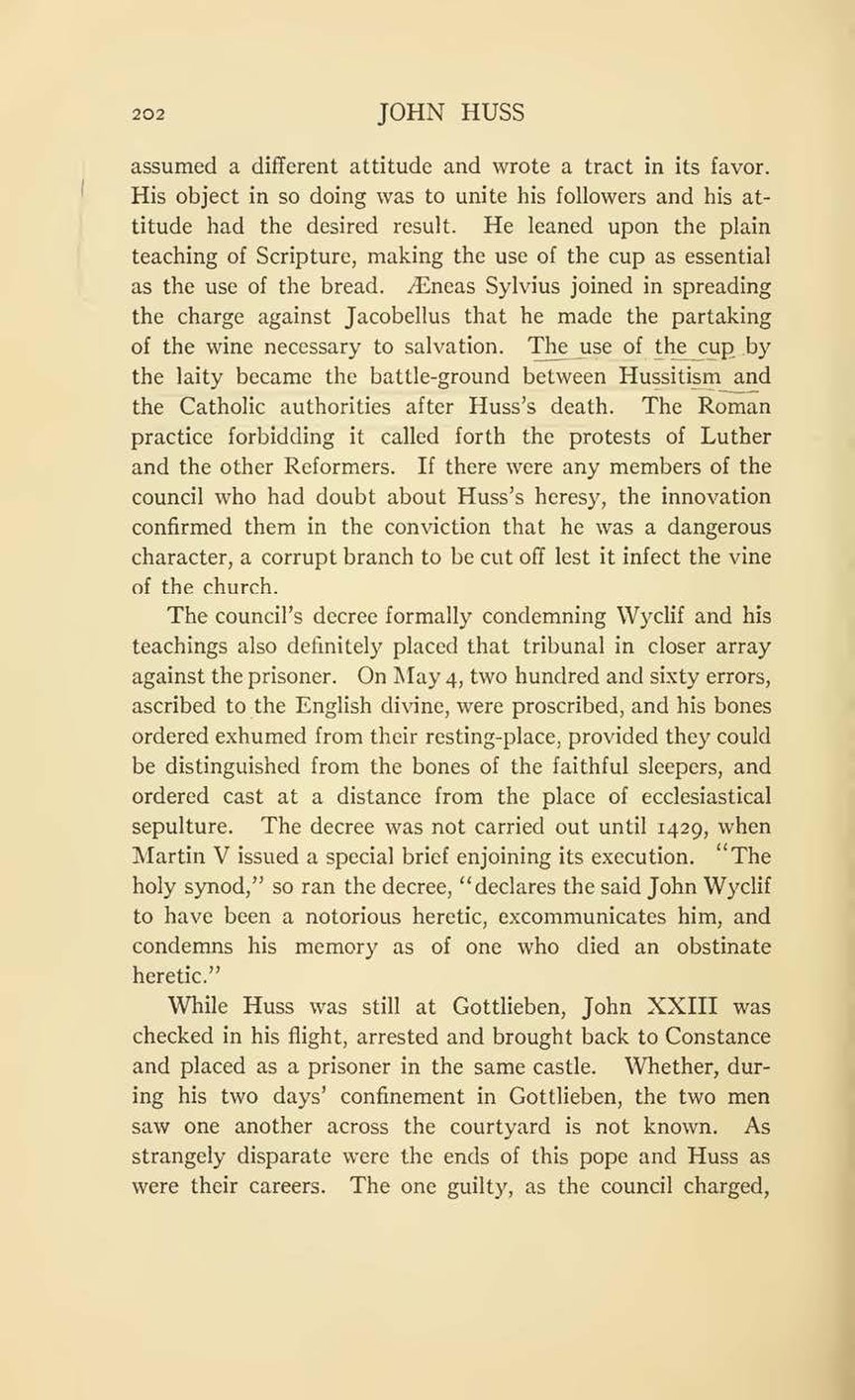assumed a different attitude and wrote a tract in its favor. His object in so doing was to unite his followers and his attitude had the desired result. He leaned upon the plain teaching of Scripture, making the use of the cup as essential as the use of the brcad. Ancas Sylvius joined in spreading the charge against Jacobellus that he made the partaking of the wine necessary to salvation. The use of the cup by the laity became the battle-ground between Hussitism and the Catholic authorities after Huss’s death. The Roman practice forbidding it called forth the protests of Luther and the other Reformers. If there were any members of the council who had doubt about Huss’s heresy, the innovation confirmed them in the conviction that he was a dangerous character, a corrupt branch to be cut off lest it infect the vine of the church.
The council’s decrec formally condemning Wyclif and his teachings also definitely placed that tribunal in closer array against the prisoner. On May 4, two hundred and sixty errors, ascribed to the English divine, were proscribed, and his bones ordered exhumed from their resting-place, provided they could be distinguished from the bones of the faithful sleepers, and ordered cast at a distance from the place of ecclesiastical sepulture. The decrec was not carried out until 1429, when Martin V issued a special brief cnjoining its cxecution. “The holy synod,” so ran the decree,” declares the said John Wyclif to have been a notorious heretic, excommunicates him, and condemns his memory as of one who died an obstinate heretic.”
While Huss was still at Gottlieben, John XXIII was checked in his flight, arrested and brought back to Constance and placed as a prisoner in the same castle. Whether, during his two days’ confinement in Gottlieben, the two men saw one another across the courtyard is not known. As strangely disparate were the ends of this pope and Huss as were their careers. The one guilty, as the council charged,
